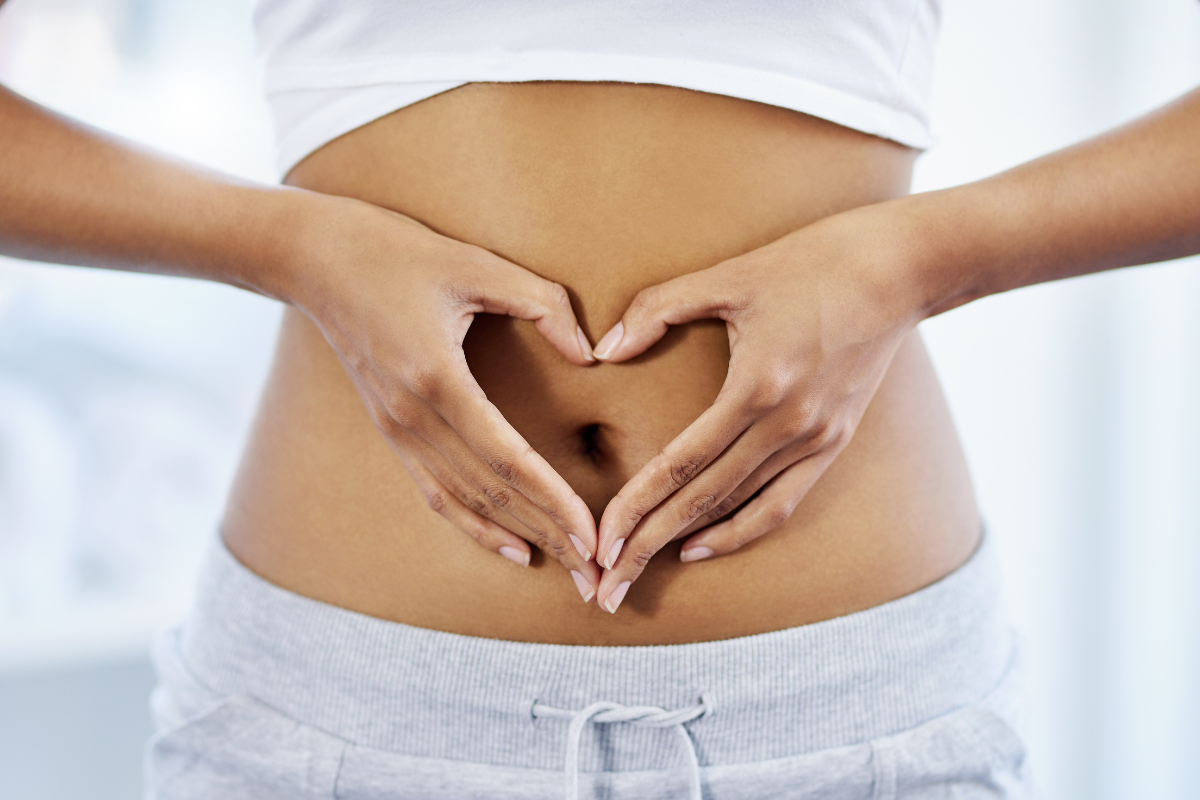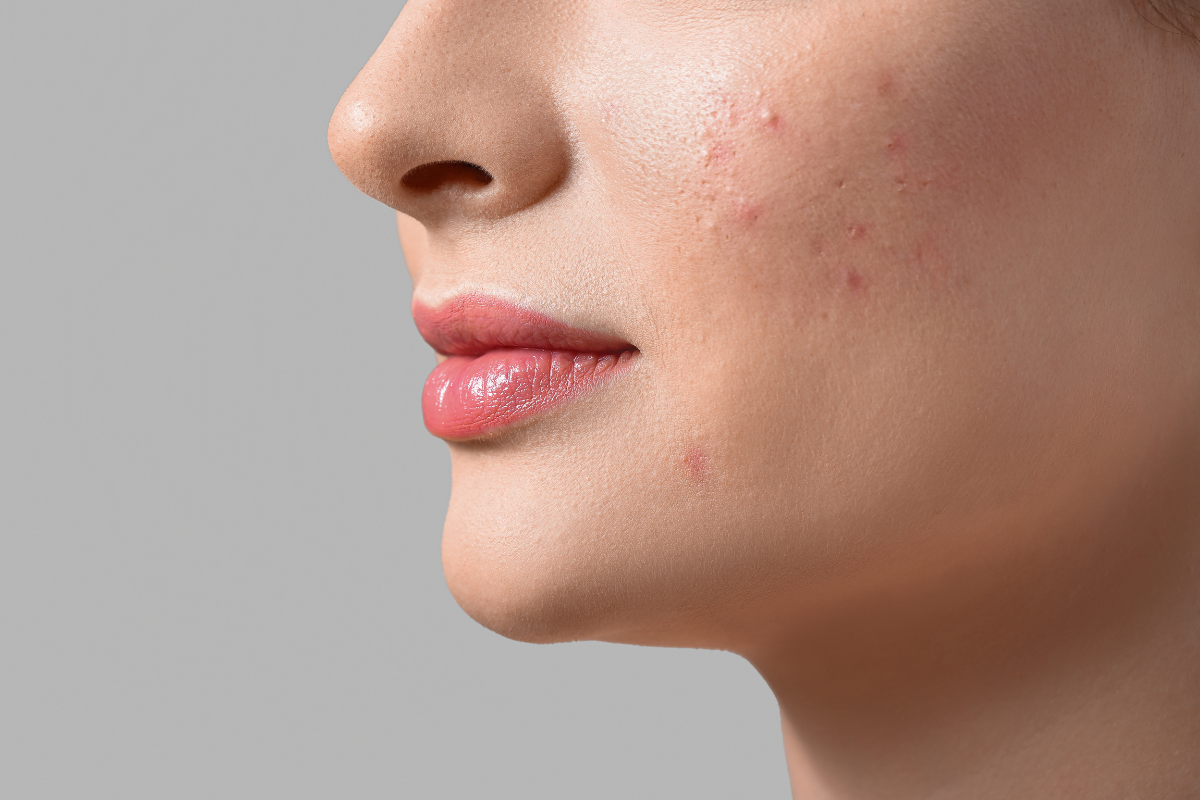Collagen - stomach upset in menopause

Collagen - stomach upset in menopause
Stomach discomfort in menopause | Menopause and upset stomach | The collagen
When you have hormonal problems, it is more important than ever to take care of your digestion. Read more about gut health here...
Your gut plays an important role in supporting your overall health. As we reach the age of 40-50 and enter menopause, it is more important than ever to take care of our digestive health. As your hormones change during menopause, you may find that your body behaves differently - and this includes changes in your digestion.
You may find that your stomach becomes more bloated, you suddenly start having acid reflux or various types of abdominal discomfort, and there may be a greater risk of developing food intolerances or allergies as well.
That's why it's important to understand what happens to your gut health during menopause—and how you can nourish your body to maintain healthy digestion.
What is the gut microbiome?
The microbiome is a unique ecosystem of billions of bacteria that live in the gut. These bacteria regulate important bodily activities, from digestion to mental function to immunological response. A healthy gut, rich in good bacteria, is usually the result of good lifestyle choices that prioritize your health. Good gut health can also have a positive effect on you during menopause. However, an unhealthy gut can reduce quality of life, especially during menopause. We will describe the connection between your gut and menopause, how menopause affects the gut microbiome and how you can use prebiotics, L-glutamine and collagen to promote gut health.
What is the connection between menopause and the gut microbiome?
During menopause, hormonal changes, namely progesterone, estrogen and testosterone changes, are linked to hot flashes, difficulty sleeping, indigestion, mood swings, anxiety and more.
However, many people are not aware that the gut plays an important role in managing many symptoms associated with menopause.
Intestinal bacteria influence and act as a catalyst for processes at the microbiological level. If your gut health is unbalanced, you will also feel unbalanced.
For example, if you experience acid reflux, indigestion and even hair loss or anxiety, an unbalanced gut could be the cause.
What effects does menopause have on the digestive system?
When your estrogen levels drop, your gastrointestinal functions suffer as a result. Your changing hormones can cause the following:
The lining of the stomach becomes weakened
Estrogen helps form collagen in our bodies, primarily the collagen in our intestines. As a result, the tissue in your digestive tract can weaken as your estrogen levels drop. You've probably heard of the term "leaky gut," which describes when "gaps" form between the cells that line the digestive tract. A leaky gut impairs the gastrointestinal tract and can affect your immune system.
You can provide the necessary building blocks for the tissues of the digestive tract with L-Glutamine, which is an amino acid, and collagen, which is a protein. Taking collagen and L-glutamine can heal a leaky gut.
Greater tendency to develop food allergies
Food intolerances and allergies are exacerbated by weakened tissue in the stomach and intestines and by a leaky gut. Particles of undigested food can enter the bloodstream, where they are recognized as foreign substances by your immune cells, leading to an immunological reaction. An immunological reaction occurs every time food is consumed.
Indigestion becomes more common
The stress hormone cortisol is secreted in response to estrogen. As a result, when estrogen levels drop, cortisol levels rise, slowing digestion. Because of this, you can get a bloated stomach, gastroesophageal reflux and stomach ache.
The blood sugar level is often elevated
Estrogen and progesterone both have an impact on how cells respond to insulin and glucose. As your body becomes more resistant to insulin and blood sugar levels become more unbalanced, decreased hormone production can increase your risk of type II diabetes.
Change in overall health
Your microbiome, made up of "good bacteria," helps you maintain good gut health, regular bowel movements, muscle mass, and blood sugar levels.
Because estrogen works in conjunction with your good bacteria, an imbalance between infection-causing and good bacteria can occur when estrogen levels drop. The connection between gut and brain can have an impact on mood and cognitive function.
The importance of prebiotics for gut health
If you're constantly struggling with gut issues like indigestion, acid reflux and diarrhea, prebiotics can help stabilize your microbiome (gut flora) by acting as food for your good gut bacteria. Prebiotics therefore indirectly help with, among other things, alleviating stomach and intestinal complaints by stabilizing and regulating intestinal processes. Prebiotics increase the number of good bacteria which in turn encourages the body to create the necessary intestinal mucus, improve intestinal barrier function and restore regular bowel movements. Some good bacteria also lower systemic inflammation, fight obesity and other diseases by increasing the health of your gut lining.
Probiotics in food are found in the following foods:
- Yoghurt
- Cottage cheese
- Sauerkraut
- Miso
- Kefir
- Kimchi
- Pickles
- Tempeh
- Kombucha
While probiotics are "good bacteria" that benefit our gut health, prebiotics are the food for these bacteria. Prebiotics are a source of food for the gut's healthy bacteria. Carbohydrates that your body can't digest, prebiotics go to your lower GI tract, where they act as food to help the healthy bacteria grow.
Prebiotics are found in the following foods:
- Asparagus
- Garlic
- Artichokes
- Onion
- Leek
- Bananas
- Dietary supplement with prebiotics






